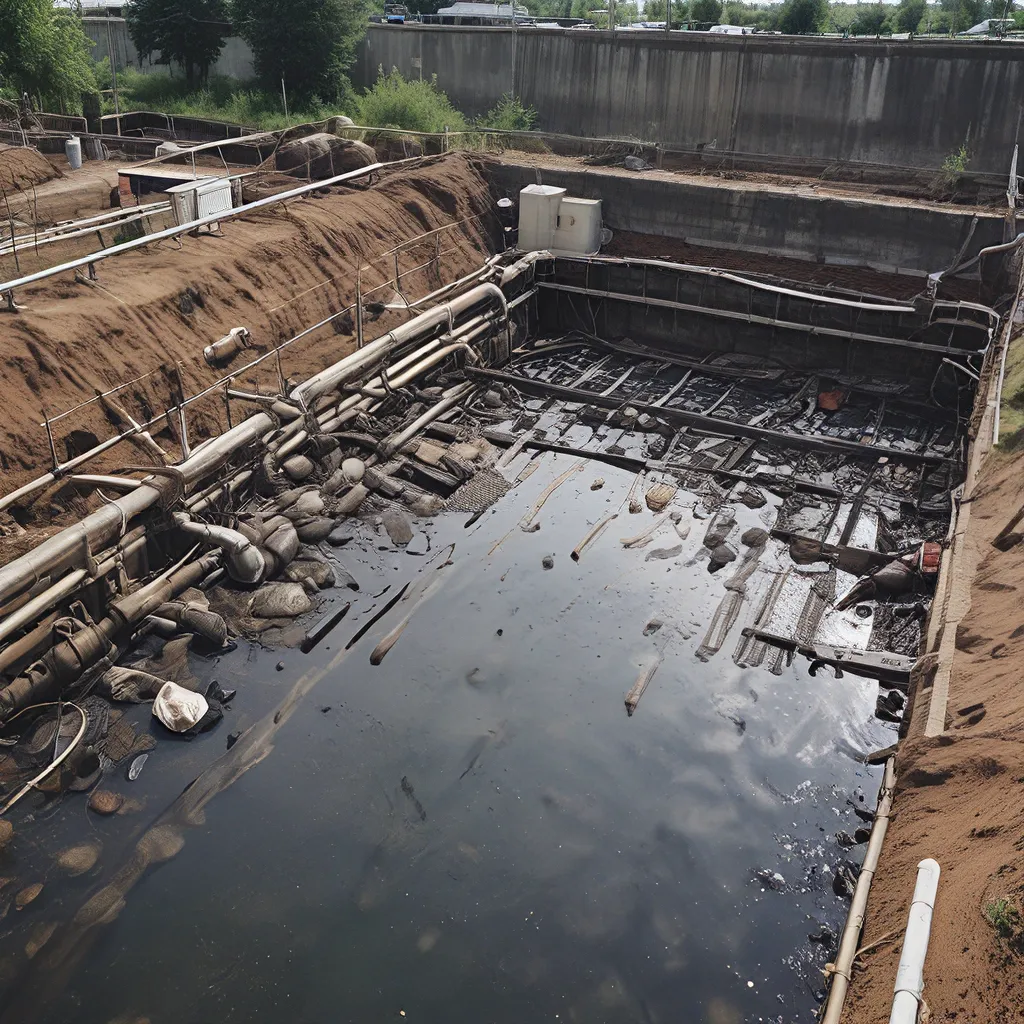
As the world grapples with the growing demand for clean water and the increasing pressure on our natural resources, the wastewater treatment industry has been undergoing a remarkable transformation. In the age of the sharing economy, where innovative service models are disrupting traditional industries, I can’t help but wonder: how can we harness the power of shared resources to optimize the way we manage our wastewater?
Rethinking Wastewater Treatment: The Sharing Economy Approach
If you’re like me, you’ve probably heard of the sharing economy revolutionizing industries like transportation and accommodation. But have you ever considered how these principles could be applied to the world of wastewater treatment? Let me paint you a picture.
Imagine a world where wastewater treatment facilities are no longer isolated, stand-alone operations, but rather interconnected hubs of resource sharing and optimization. Picture a network of treatment plants, each with its own unique capabilities and capacities, working together to ensure that every drop of wastewater is treated and reclaimed in the most efficient and sustainable way possible.
In this sharing economy model, excess capacity at one facility could be seamlessly redirected to support the needs of another, reducing the overall investment required in new infrastructure. Imagine if Alpha Wastewater, for example, could partner with neighboring treatment plants to share resources and optimize their collective impact. The possibilities are truly exciting.
Unlocking the Power of Data-Driven Decisions
But the real magic happens when we combine this sharing economy approach with the power of data analytics. By leveraging the vast amounts of data generated by these interconnected wastewater treatment facilities, we can uncover insights that were once hidden, and make more informed, data-driven decisions.
Researchers have found that by using advanced data analytics, wastewater treatment plants can identify optimization opportunities, predict maintenance needs, and even anticipate changes in water quality and demand. This allows them to adapt and respond in real-time, ensuring that every drop of water is treated and reused as efficiently as possible.
Imagine a scenario where a facility notices an unexpected surge in wastewater volume due to a local event or seasonal change. By tapping into the shared network, they could quickly redirect excess capacity from a neighboring plant, preventing any disruptions in service or compliance issues. This is the power of the sharing economy in action.
Fostering a Culture of Collaboration and Innovation
But the real magic of this sharing economy approach goes beyond just the technological and operational benefits. It’s about fostering a culture of collaboration and innovation within the wastewater treatment industry.
As experts have suggested, when treatment facilities are empowered to share resources, ideas, and best practices, it can drive a new era of innovation. Imagine the breakthroughs that could occur when researchers and engineers from different organizations come together to tackle common challenges, or when facility operators share their unique insights and experiences.
I believe this collaborative mindset is exactly what the team at Alpha Wastewater is cultivating. By embracing the principles of the sharing economy, they are not only optimizing their own operations, but also contributing to the advancement of the entire industry.
Overcoming Challenges and Building a Sustainable Future
Of course, transitioning to a sharing economy model for wastewater treatment is not without its challenges. There are regulatory hurdles to navigate, data-sharing protocols to establish, and cultural shifts to overcome. But I believe that the potential rewards far outweigh the obstacles.
Research suggests that by adopting a more collaborative and resource-sharing approach, wastewater treatment facilities can reduce their carbon footprint, minimize waste, and optimize their use of energy and water. This not only benefits the environment but also contributes to the long-term sustainability of the industry.
As we look to the future, I can’t help but feel excited and hopeful about the possibilities that lie ahead. By embracing the sharing economy and leveraging the power of data-driven decisions, the wastewater treatment industry can become a shining example of how innovation and collaboration can create a more sustainable and resilient future for all.
So, what are we waiting for? Let’s dive in and explore the endless possibilities of this new era of wastewater treatment. Who knows what breakthroughs await us on the other side? Alpha Wastewater is leading the way, and I can’t wait to see what they do next.